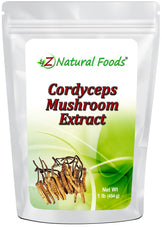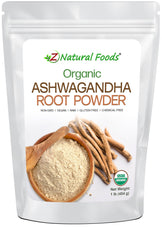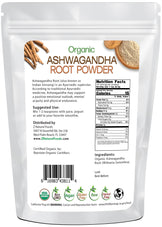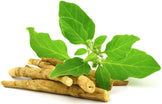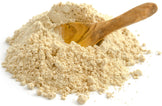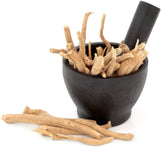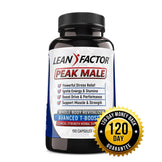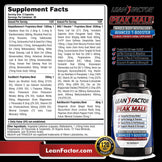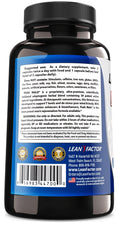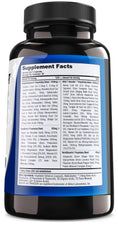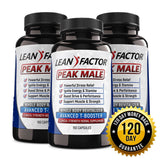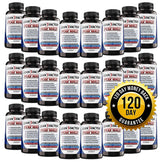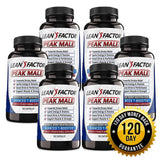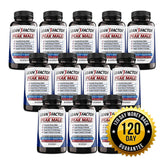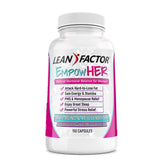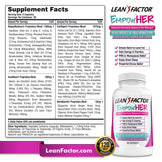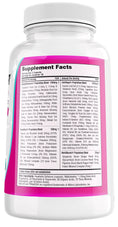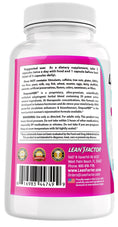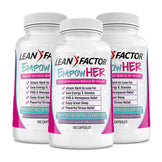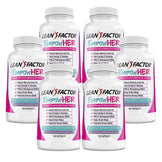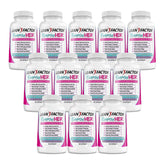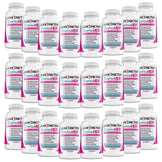Description
Description
To answer whether you should take adaptogens before and after your workouts correctly, it is vital first to understand adaptogens and their role.
The categories that adaptogens are classified within are management and supportive herbs and fungi because the benefits are widespread through nonspecific physiological responses.
What makes all adaptogens unique is their ability to adapt to the harsh conditions in which they are grown.
This adaptability allows them to thrive and become robust plants.
As the research on adaptogens has been compiled over the years, herbalists and scientists have learned and concluded how each adaptogen's energy (warming, cooling, drying, moistening) and constituents balance has allowed them to be used in a more specific targeted approach.
In simple terms, the use and function of adaptogenic herbs support the body's ability to have a healthy stress response.
Plants and fungi are often categorized based on their functional qualities. Unfortunately, many plants and fungi are called adaptogens even though they don’t fulfill the criteria that define an adaptogen. Therefore, it is essential to understand the requirements for how an adaptogen is defined and how they work.
The following are primary points that define what a plant or fungi must do to be considered an adaptogen.
Adaptogens must:
- Be nontoxic at clinical dosage
- Increase the resistance of the hormonal and immune systems to all kinds of stressors through a nonspecific physiological response.
- Normalize body function no matter how external stressors have altered them.
Because many plants not considered true adaptogens can fulfill the above criteria, we have learned that what makes a plant an actual adaptogen is that it must also work through one or both of the body’s master control systems.
- The HPA Axis (Hypothalamic-Pituitary-Adrenal Axis) is a complex system of neuroendocrine pathways and feedback loops that maintain and support homeostasis in response to chronic stress. The HPA axis is the interface between the endocrine, nervous, immune, digestive, reproductive, and cardio systems.
- The SAS (Sympatho Adrenal system, aka fight or flight) is a complex system that connects the sympathetic nervous system to the adrenal medulla. In simple terms, it is our fight-or-flight response. A triggered response floods our system with adrenalin and releases hormones epinephrine and norepinephrine from the adrenal medulla. This response increases blood pressure, blood sugar, and heart rate and suppresses digestion. This releasing of hormones and redistribution of blood allows the mind and body to respond and survive.
Furthermore, it is essential to understand that adaptogens are not a one-size-fits-all concept. If you require using adaptogens, looking at the individual, not the condition, is critical. Not every adaptogen is suitable for everyone. Like all other plant medicines, individual adaptogens have their unique qualities. They can be nourishing, warming or cooling, stimulating or calming, moistening or drying in nature. Depending on the species and where they are grown can also affect one’s results.
So, should you take adaptogens before and after workouts?
The short answer is NO. Pre- or post-workout compounds and formulas are often fast-acting substances intended to support your body during training and the critical post-workout window specific to recovery.
While some evidence shows that a single dose application of specific adaptogens increases mental performance and physical work capacity, there is not enough evidence to show that taking adaptogens specifically before and after a workout directly correlates to better recovery from that workout.
Adaptogens work over an extended period and require consistent use.
That said, there is overwhelming evidence regarding the constant and long-term use of adaptogens producing non-specific physiological responses that do positively support performance and recovery over the long haul.
A study looking at the effects of Rhodiola on stress-related fatigue concluded that repeated administration of R. ROSEA extract SHR-5 exerts an anti-fatigue effect that:
- increases mental performance, particularly the ability to concentrate, and
- decreases cortisol response to awakening stress in burnout patients with fatigue syndrome.
According to a review titled Sleep Disorders in Mitochondrial Disease it was stated,
“Sleep-disordered breathing is the primary sleep disorder reported in mitochondrial disease, OSA (obstructive sleep apnea) and CSA (central sleep apnea) are more frequently associated with patients characterized by prevalent involvement of skeletal muscle and the central nervous system.
In one study, Effects of Ashwagandha on stress manifested anxiety; The treatment group showed a “significant reduction” in “scores on all stress assessment scales.” An even more impressive result was the reduction in serum cortisol levels. Both results were compared to a placebo group.
Are Adaptogens Good for Athletes?
The short answer is YES. Adaptogens are not only good for athletes, but research shows that many positive aspects of using adaptogens consistently directly affect various aspects of athletic performance and are necessary to support mental and physical performance at all levels.
The following was stated in a randomized controlled study examining the effects of Ashwagandha use for eight weeks on muscle strength and recovery.
- Compared to the placebo subjects, the group treated with ashwagandha had more significant increases in muscle strength on the bench-press exercise and the leg-extension exercise and more substantial muscle size increase in the arms.
- Compared to the placebo subjects, the subjects receiving ashwagandha also significantly reduced exercise-induced muscle damage, as indicated by the stabilization of serum creatine kinase.
Therefore, it was concluded that ashwagandha supplementation is associated with significant muscle mass and strength increases. It suggests that ashwagandha supplementation may be helpful in conjunction with a resistance training program.
The following was stated in another eight-week study assessing the effect of Ashwagandha in improving cardiorespiratory endurance and recovery in healthy athletic adults.
- A statistically significant improvement in VO2 max outcome was observed in the Ashwagandha group compared to the placebo group.
- The subjects in the Ashwagandha group also displayed a statistically significant increase at the end of the study compared to the baseline.
- The Ashwagandha group members observed significantly improved TQR scores compared to their placebo counterparts.
- DALDA questionnaire analysis in the Ashwagandha group was statistically significant compared to the placebo group.
- RESTQ assessment also yielded better outcomes, especially for fatigue recovery and fitness analysis.
- The enhanced antioxidant level was significant in the Ashwagandha group.
Therefore, it was concluded that “the present findings suggest that Ashwagandha root extract can successfully enhance cardiorespiratory endurance and improve the quality of life in healthy athletic adults. No adverse events were reported by any of the subjects in this study.”
Finally, the following was stated in another study assessing the effect of Cordyceps sinensis on exercise performance in healthy older subjects, “After receiving cordyceps for 12 weeks, the metabolic threshold increased by 10.5%, and the ventilatory threshold increased by 8.5%. Significant changes in metabolic or ventilatory threshold were not seen for the subjects in the placebo group after 12 weeks, and there were no changes in Vo(2) max in either group.”
It was concluded that supplementation with Cordyceps sinensis improves exercise performance and might contribute to wellness in healthy older subjects.
In conclusion, Adaptogens are the most well-researched, well-respected, time-tested, and proven category of herbs worldwide to support and optimize mental and physical well-being by supporting nonspecific physiological responses.
If used appropriately, adaptogens can be the modern-day savior and allow us to perform at our best.
For more information about our Organic Ashwagandha Root Powder, go here:
Organic Ashwagandha Root Powder
For more information about our Cordyceps Mushroom Extract Powder, go here:
For more information about our Organic 7 Mushrooms Blend, go here:



